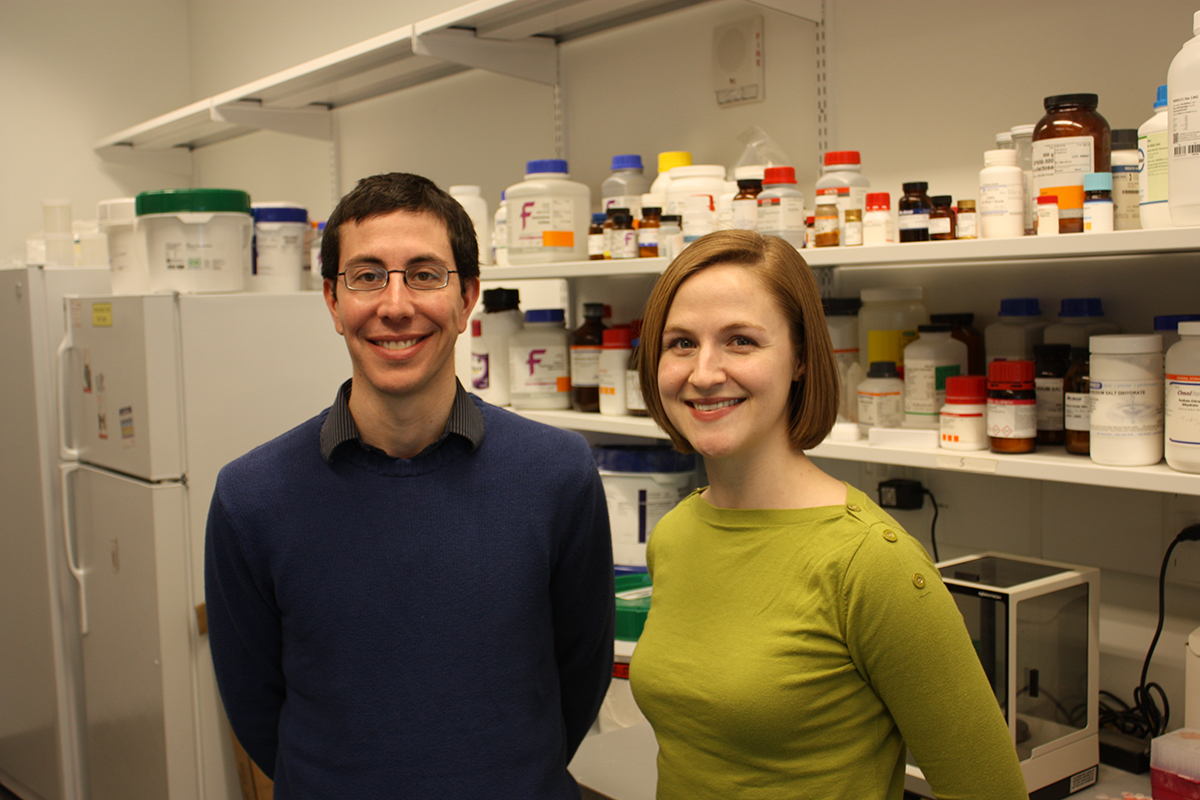Mann Award winner studies switching process in cells
By David Nutt

Inside every plant and animal cell there is a Grand Central Station of sorts, called the Golgi complex, which ships proteins off to other parts of the cell via various pathways. Specific proteins are able to turn these pathways on and off, but scientists have yet to determine what triggers that response.
Maggie Gustafson is a fifth-year doctoral student in the field of biochemistry, molecular and cell biology and this year’s winner of the Harry and Samuel Mann Outstanding Graduate Student Award. Her research in Chris Fromme’s lab is unlocking the secrets of a protein decision-making process that few knew existed until it was discovered at Cornell four years ago.
Gustafson is studying Gea1 and Gea2, which, along with Sec7, are the switch flippers (specifically known as GEFs, or guanine nucleotide exchange factors) that turn the molecular switch Arf1 “on.”
Without a successful switching process and properly functioning pathways, cells can’t survive. Gustafson has found there is no single signal or interaction responsible for Gea activating Arf, but rather multiple components are cooperating together to flip the switch.
“Just in the last year we’re starting to see more of the signals,” Gustafson said. “I’m hoping we can start teasing out more of how those signals work together and understand the cohort of signals that Gea requires to do its job. But it’s taken a long time and a lot of work to get to that point, a lot of mental gymnastics.”
Fromme’s lab was the first to purify these proteins for test tube experiments four years ago, which opened the door for deeper research into the proteins’ biochemical processes.
“Before Maggie started working on these proteins no one had done an in-depth characterization of them,” Fromme said. “When Gea1 and Gea2 were discovered, people knew broadly where they acted and what they did, but other than that, nothing about how they behaved. So once she publishes her paper, almost everything the world knows about these proteins will be because of Maggie’s work.”
Gustafson’s strength as a researcher is complemented by her long-standing interest in community engagement. For the last three years she has taught mini-courses on cell biology to students at Ithaca’s Cayuga Heights Elementary School through the Graduate Student School Outreach Program, GRASSHOPR. Gustafson is also active with the Cornell Institute for Biology Teachers, which holds workshops and intensive training for teachers in science.
“Maggie is an outstanding communicator and a really great ambassador for our program, a model student,” Fromme said. “When we’re trying to attract students, Maggie’s the type of person where we say, ‘Look, this could be you.’”
The Mann Award was established by Thomas Mann ’64 and Diann Mann ’66, and Cornell parents Jeanne and Gary Newman. Cousins Thomas Mann and his cousin Jeanne Newman conceived of the $20,000 award as a way to honor their fathers, Harry and Samuel Mann, sons of Russian immigrants who were early innovators in the production of penicillin, by celebrating the next generation of biochemical, molecular and cell biologists.
“Maggie Gustafson represents what we hope will propel all of us to a better future. Teaching excellence. Research excellence,” said Thomas Mann, Samuel’s son. “Thank you and good luck, Maggie. Thank you, Cornell.”
David Nutt is a writer for the College of Agriculture and Life Sciences.
Media Contact
Get Cornell news delivered right to your inbox.
Subscribe